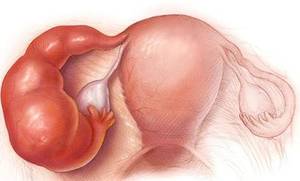When it comes to the topic of bowel movements, most people tend to shy away from discussing it openly. However, understanding changes in our feces can provide valuable insights into our digestive health. One phenomenon that often raises eyebrows is floating poop. In this article, we will explore whether floating poop is normal and what it could potentially indicate about our well-being.
Identifying Floating Poop
Floating poop, also known as steatorrhea, is characterized by feces that remain buoyant in the toilet bowl, seemingly defying gravity. While individual bowel movements can vary, floating poop typically occurs due to a higher-than-normal fat content.
Potential Causes of Floating Poop
- Excessive fat intake: Consuming a high-fat diet, especially one containing unhealthy fats, can lead to increased fat excretion in stools, resulting in floaters.
- Malabsorption issues: Conditions such as celiac disease, Crohn’s disease, pancreatitis, and liver disorders can disrupt the body’s ability to absorb fat properly. Consequently, fat molecules may pass through the digestive system without being fully digested, leading to floating poop.
- Pancreatic insufficiency: Insufficient production or release of pancreatic enzymes can impair fat absorption and digestion, causing floating poop. This condition can result from pancreatitis, cystic fibrosis, or pancreatic cancer.
- Gallbladder dysfunction: The gallbladder is essential for storing and releasing bile, which helps in digesting fats. If the gallbladder isn’t working well, the body may have difficulty breaking down fats properly, resulting in stools that float.
- Medications: Some drugs, such as those used for weight loss or that impact the way the body absorbs or digests fat, may also play a role in the formation of floaters.
When to Seek Medical Attention
While an occasional bout of floating poop may be harmless, persistent or accompanied by other concerning symptoms warrants medical evaluation. Consult your healthcare professional if you experience any of the following:
- Severe abdominal pain
- Diarrhea or constipation lasting more than a few days
- Unexplained weight loss
- Chronic fatigue
- Noticeable changes in stool color or consistency
- Bloody stools
Treatment and Management
If a medical condition is identified as the underlying cause of floating poop, treatment will focus on addressing the specific issue. This may involve dietary changes, medication, or further diagnostic tests to determine the precise cause of the digestive disturbance.
Preventive Measures and Promoting Digestive Health
One can promote optimal digestive health by following a well-rounded eating plan that includes adequate fiber and beneficial fats, while limiting excessive fat intake. Additionally, taking part in regular physical activity, staying hydrated, effectively managing stress, and keeping alcohol consumption in moderation are crucial for maintaining a healthy digestive system.
Conclusion
Having floating poop can happen from time to time, especially if you eat fatty foods or change your diet temporarily. However, it can also be a sign of digestive problems. Taking care of your digestive health is important for your overall well-being.










